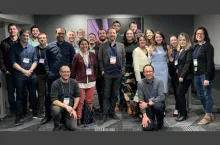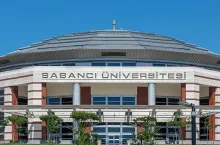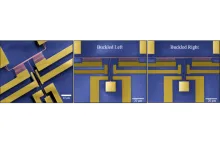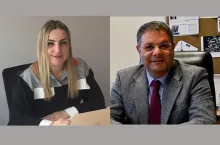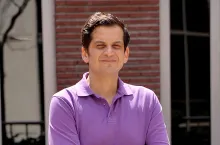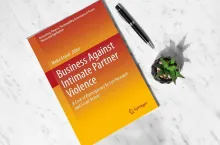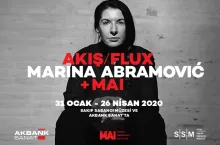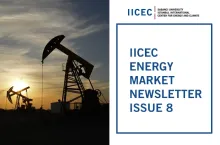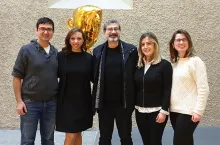25/02/2020
Sabancı Graduate Business School is accepting applications for the 2020-2021 academic year MBA-Non Thesis, Executive MBA-Non Thesis (EMBA), Professional MBA-Non Thesis, Masters in Finance-Non Thesis (MIF), Masters in Business Analytics-with Thesis (MSc.in BA), Masters in Business Analytics-non Thesis (MSc.in BA-NT) and Management PhD programs. Information regarding these programs can be obtained from the website. Additionally, various scholarships are available for MBA, MSc.in BA-with Thesis and PhD programs.
Please click for application requirements.
Applications for the MBA-NT Program:
The MBA Program is open to all candidates with an undergraduate degree from an accredited university.
Application Deadline for MBA:
Early Applications : April 17, 2020
Scholarship Applications : ………., 2020. Final deadline for international applications and scholarship applications.
Applications : ………., 2020. Only local students can apply between …….. - ………. 2020. No scholarships are awarded after …….. 2020.
Admission Process:
Online application is required. After an initial screening, eligible candidates are to be interviewed. Interview results and decisions will be mailed to the candidate.
For more information: Ekin Basat (0216) 483 96 71 or ekinbasat@sabanciuniv.edu
Application Deadline for Professional MBA-NT :
Early Applications : June 5, 2020
Applications :
Admission Process: After an initial screening, eligible candidates are to be interviewed. Interview results and decisions will be mailed to the candidate. Applicants may also attend the Sabanci University English proficiency exam that will be held on March 7, April 18, May 16, June 27, July … 2020 All applicants who plan to attend SU exams should complete their online application before the exam dates. The spoken English level of the applicant will be evaluated in the interview.
ALES or equivalent test scores are not required for the applications to Executive MBA program.
For more information: (0216) 483 9734 or pmba@sabanciuniv.edu
Application for the Executive MBA-NT (EMBA) Program:
Application Deadline for Executive MBA:
Early Applications : June 5, 2020
Applications : July ..., 2020
Admission Process: After an initial screening, eligible candidates are to be interviewed. Interview results and decisions will be mailed to the candidate. Applicants may also attend the Sabanci University English proficiency exam that will be held on March 7, April 18, May 16, June 27, July … 2020. All applicants who plan to attend SU exams should complete their online application before the exam dates. The spoken English level of the applicant will be evaluated in the interview.
ALES or equivalent test scores are not required for the applications to Executive MBA program.
For more information: Neyir Özdemir (0216) 483 9743 or neyir.ozdemir@sabanciuniv.edu
Application for the Masters in Finance-NT(MiF) Program:
All candidates who have a 4-year undergraduate degree may apply to the Program.
Application Deadline for MiF:
Early Applications : June 5, 2020
Applications : July .., 2020
Admission Process:
Applicants may also attend the Sabanci University English proficiency exam that will be held on March 7, April 18, May 16, June 27, July … 2020. All applicants who plan to attend SU exams should complete their online application before the exam dates.
The spoken English level of the applicant will be evaluated in the interview.
ALES or equivalent test scores are not required for the applications to MiF program.
For more information: Ekin Basat (0216) 483 96 71 or ekin.basat@sabanciuniv.edu
Application for the MS in Business Analytics Non-Thesis Program:
Application Deadline for MS in Business Analytics Non-thesis Program
Early Applications : June 5, 2020
Applications : July .., 2020
Admission Process: After an initial screening, eligible candidates are to be interviewed. Interview results and decisions will be mailed to the candidate. Applicants may also attend the Sabanci University English proficiency exam that will be held on March 7, April 18, May 16, June 27, July … 2020. All applicants who plan to attend SU exams should complete their online application before the exam dates. The spoken English level of the applicant will be evaluated in the interview.
ALES or equivalent test scores are not required for the applications to MS in Business Analytics Non-Thesis program.
For more information: (0216) 483 9672 or mscban-nt@sabanciuniv.edu
Application for the Masters in Business Analytics (MSc. in BA) – Thesis Program:
All candidates who have a 4-year undergraduate degree may apply to the Program.
Application Deadline for MSc.in BA-With Thesis:
Early Applications : ……., 2020
Applications : ……., 2020
Admission Process: After an initial screening of the documents, eligible candidates will be interviewed. Interview results and decisions will be sent by mail.
For more information: Ekin Basat (0216) 483 9671 or ekin.basat@sabanciuniv.edu
Application for the PhD Program:
Candidates will be accepted to Management and Organization, Business Analytics and Operations Management, Finance and Action Research concentrations.
The PhD program in Management is open to candidates with a background in business, economics, engineering, social or natural sciences.
Application Deadline for PhD: June 12, 2020
For more information: Işıl Kılıç (0216) 483 9976 or isil.kilic@sabanciuniv.edu
Sabancı Üniversitesi
Öğrenci Kaynakları Birimi,
Orta Mahalle, Üniversite Cd. No:27, Tuzla, 34956 Istanbul
0 (216) 483 90 93
0 (216) 483 90 73
Please contact studentinfo@sabanciuniv.edu if you have any questions regarding your graduate application.


